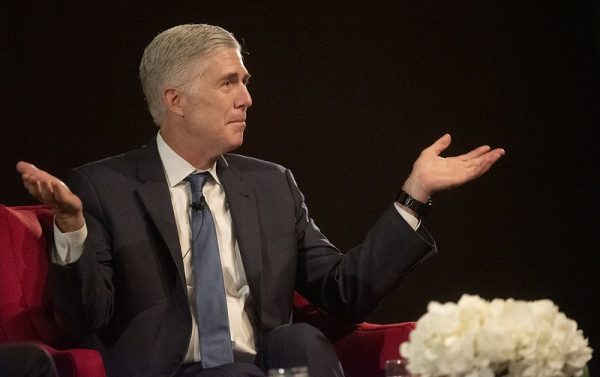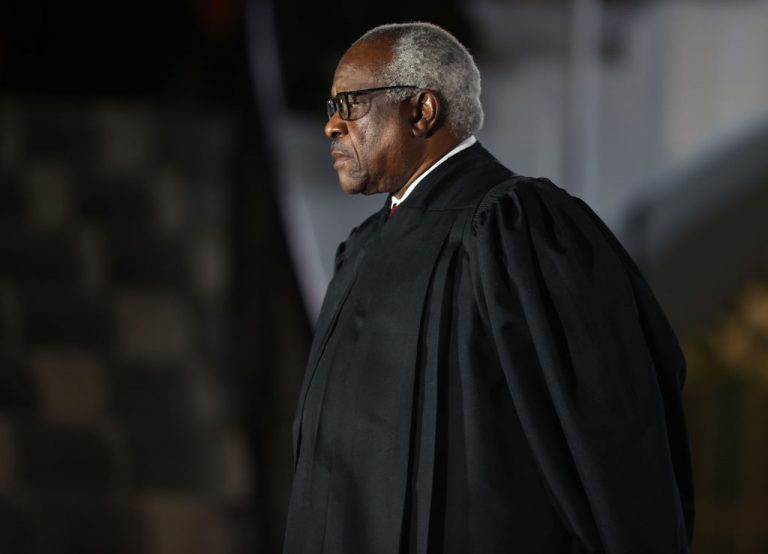The U.S. Supreme Court has thrown out a Republican Party appeal against a Pennsylvania Supreme Court decision that usurped the provisions of the state legislature by allowing the counting of mail-in ballots up to three days after the 2020 General Election concluded.
Republicans argued the court usurped the legislature’s plenary power to set election rules and was in violation of the U.S. Constitution. Justices Neil Gorsuch, Samuel Alito, and Clarence Thomas were dissenting voices in the 6-3 ruling, which dismissed the challenge as moot due to the election having been settled.
Clarence Thomas: decision ‘inexplicable’
Justice Thomas remarked, “These cases provide us with an ideal opportunity to address just what authority nonlegislative officials have to set election rules, and to do so well before the next election cycle,” adding his peers’ decision was “inexplicable.”
In his dissent, Thomas said the Pennsylvania Democratic Party relied on a “vague clause in the State Constitution providing, in relevant part, that ‘[e]lections shall be free and equal’,” in their motion to the state’s Supreme Court to have the mail-in ballot deadline extended.
The Pennsylvania Supreme Court ruling met with immediate pre-election challenges as a petition for emergency relief was filed with the U.S. Supreme Court by Republicans as early as Sept. 28, 2020. In Justice Thomas’s opinion, “Because the Federal Constitution, not state constitutions, gives state legislatures authority to regulate federal elections, petitioners presented a strong argument that the Pennsylvania Supreme Court’s decision violated the Constitution by overriding ‘the clearly expressed intent of the legislature’.”
Success
You are now signed up for our newsletter
Success
Check your email to complete sign up
However, the emergency relief was heard after Justice Ruth Bader Ginsburg had passed away and in the interim before President Trump’s nominated replacement, Amy Coney Barrett, was confirmed. The Court was a member short, tied 4-4 in its decision, and failed to act. In Justices Alito and Gorsuch’s dissent, they called the deadlock an “unfortunate decision,” which “virtually ensured that this important question could not be decided before the election.”
Justice Thomas notes “We are fortunate that the Pennsylvania Supreme Court’s decision to change the receipt deadline for mail-in ballots does not appear to have changed the outcome in any federal election,” but cautions “we may not be so lucky in the future.”
Gorsuch and Alito: ‘important and recurring constitutional question’
Meanwhile, Justices Alito and Gorsuch said the case presents “an important and recurring constitutional question: whether the Elections or Electors Clauses of the United States Constitution, are violated when a state court holds that a state constitutional provision overrides a state statute governing the manner in which a federal election is to be conducted,” adding, “our review at this time would be greatly beneficial.”

“There is no reason for refusing to decide the important question that these cases pose,” said the Justices, noting that the mail-in ballot deadline extension only produced approximately 10,000 disputed ballots, far short of the 80,000 margin Joe Biden won Pennsylvania with. So while the case could not affect the outcome of the federal election, “a decision would provide invaluable guidance for future elections,” they said.
The pair also disagreed with Respondents, who argued SCOTUS should not hear the case because the election is over and the matter does not “fall within the mootness exception for cases that present questions that are ‘capable of repetition’ but would otherwise evade review,” because the exceptional measures adopted were in response to the SARS-CoV-2 novel coronavirus pandemic.
Justices Alito and Gorsuch disagreed vehemently because the Pennsylvania Supreme Court ruling relied on the “free and equal” wording of the State Constitution and gave “the Pennsylvania courts the authority to override even very specific and unambiguous rules adopted by the legislature for the conduct of federal elections.”
The Justices said the notion “misunderstands the applicable legal standard,” clarifying, “In order for a question to be capable of repetition, it is not necessary to predict that history will repeat itself at a very high level of specificity.”
Alito and Gorsuch also found it “highly speculative to forecast” that the Pennsylvania Supreme Court will not find “materially similar” conditions in future federal elections.
The case argued is Republican Party of Pennsylvania v. Degraffenreid, 20-542.
Follow us on Twitter or subscribe to our email list
















